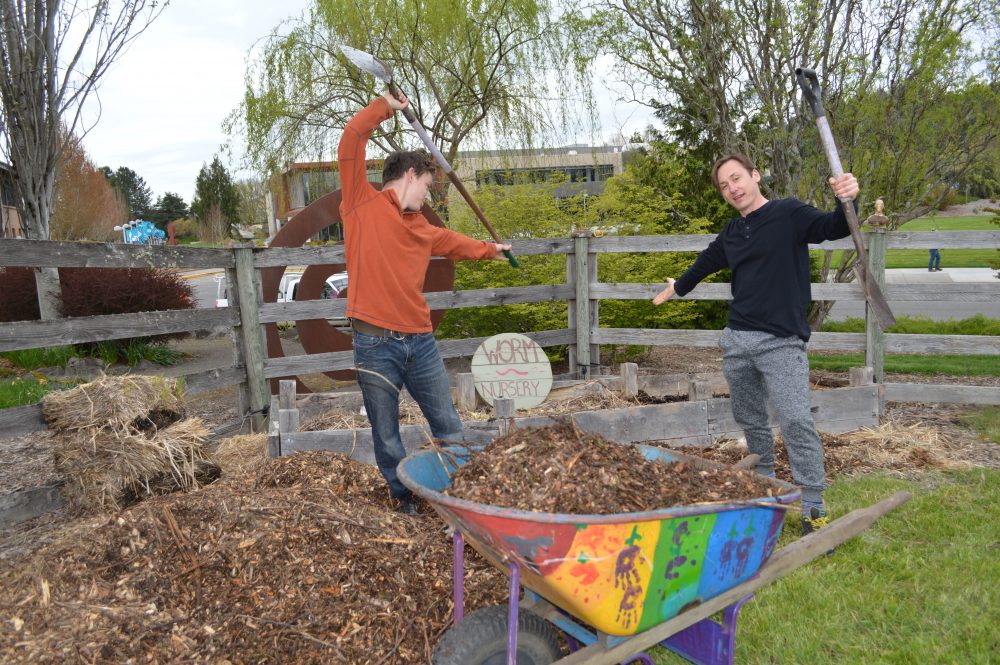Strategic food waste reduction

At PCC Dining Services we are fighting the negative impacts of food waste by offering smaller portion options, going trayless, and composting. The UN informs us in Food Wastage and Climate Change that global food waste generates about 8% of the total human caused GHG emissions per year! In another study they found that, “Each year, food that is produced but not eaten guzzles up a volume of water equivalent to the annual flow of Russia’s Volga River and is responsible for adding 3.3 billion tonnes of greenhouse gases to the planet’s atmosphere.” By wasting less food and composting our food scraps we are making real reductions to PCC’s GHG emissions and doing our part to curb climate change.
By composting kitchen food scraps we are keeping food waste out of the landfill and turning it back into healthy soil. Food scraps are collected in our kitchens, transported to vermiculture worm bins where the worms do the work of creating nutrient rich compost. This compost is used in our campus Learning Gardens. Rock Creek harvested 515 pounds of vermicompost in the Spring of 2017 which was used to nourish their flourishing Learning Garden, campus grounds, and the orchard. In PCC’s Rock Creek Learning Garden students, staff, and faculty helped to grow over 2,000 pounds of fresh produce in 2016!
At Sylvania and Rock Creek campuses students are given the opportunity to compost their banana peels, tea bags, and leftover food through post consumer composting programs. This compost is added to the pre-consumer compost and tossed into worm bins. Compost from other campuses is collected by local waste haulers and goes to Oregon commercial composting facilities with specialized processes to quickly break down the organic matter. Compost from these businesses is sold to landscapers and other agricultural users and available to residents.
Learn more about the UN’s research into how food waste contributes to Climate Change.
Ways to advance sustainability in food waste at PCC
